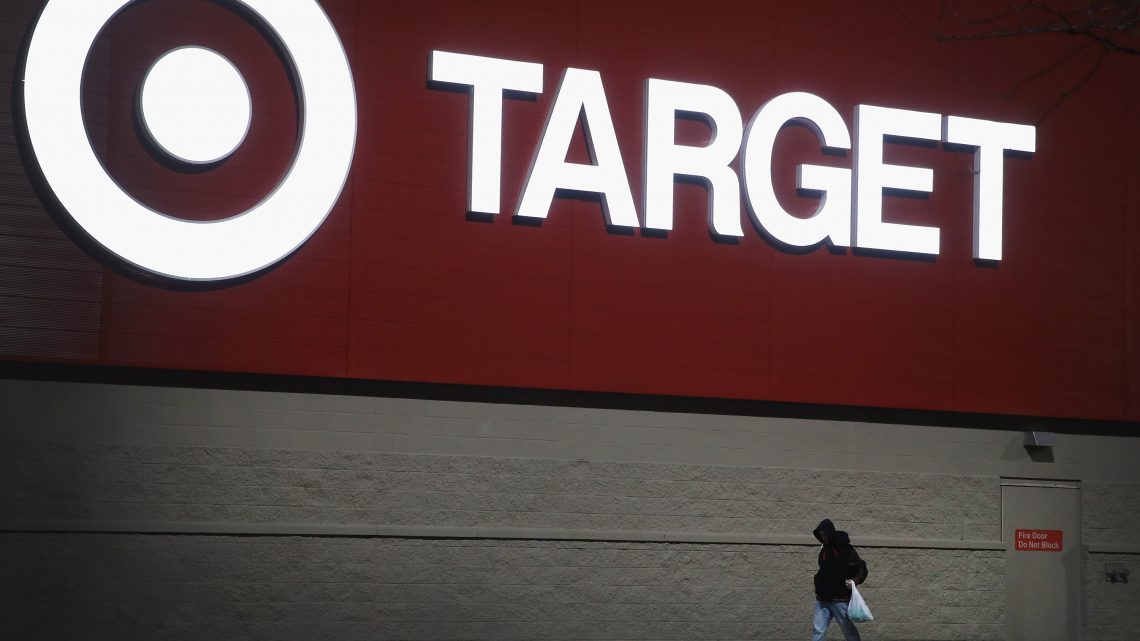
Target’s Gig Workers Will Strike to Protest Switch to Algorithmic Pay Model
July 11, 2020Gig workers on Target’s delivery app Shipt will strike on July 15 to protest the rollout of an algorithmic pay model that they claim has reduced wages by 30 percent in cities where it has been tested. The striking workers have also asked customers to boycott the app.
On Friday, Shipt announced to workers on its Facebook group and through notifications on its app that the pay model would take effect in at least 38 new metro areas in the United States in coming weeks. For gig workers in 12 of those metro areas, including Chicago, Indianapolis, Tampa, Denver, Portland, and Richmond, Virginia, the algorithmic pay model will take effect on July 15.
“Soon, your pay will reflect your effort,” Shipt informed workers in the 12 cities on Friday in internal messages on the app reviewed by Motherboard. “Here’s what to expect: the estimated pay range for each order will now consider variables including high store traffic times, street traffic, and estimated store-to-door travel time.”
The walkout marks the third time Shipt gig workers have gone on strike. Shipt has more than 100,000 gig workers in the United States, and has hired at least 10,000 more during the Coronavirus pandemic. The app, a top competitor of the grocery delivery service Instacart, has gained notoriety for censoring and retaliating against workers on social media, as Motherboard reported in February.
While Shipt has framed the new payment model as a benefit to workers, the company’s gig workers have substantial evidence that it will hurt them. In cities such as Philadelphia, Kalamazoo, Michigan, and San Antonio, Texas, where Shipt has already rolled out the new pay model in recent months, gig workers say they’ve seen their wages plummet by between 30 and 40 percent. For years, Shipt has used a clear commissioned-based pay model that ($5 plus a 7.5 percent commission on all orders), but began to roll out the new model in 2019. In some metro areas, workers say their pay dropped by as much as 50 percent.
"We have learned a great deal in the past six years about compensation and how external factors may influence the shopping experience," a spokesperson for Shipt told Motherboard. "We are updating our pay model to better account for the actual effort it takes to complete and deliver orders by factoring in estimated drive time, the number of items in the order, peak shopping windows and location. This means that some orders may pay out differently than before since payment is based on effort and not on the value of the order."
At other gig economy giants that rely on so-called ‘black box’ algorithmic pay structures, such as Instacart, DoorDash, Uber, and Lyft, workers who rely on the app as a primary source of income have found themselves at the mercy of constant, unexpected tweaks to their pay structure and no guarantee that they’ll make the minimum wage.
Desiree M, a Shipt shopper in San Antonio who spoke on the condition we use only her first name because she feared retaliation from the company, says she used to rely on Shipt as a full-time job, but when Shipt tested out the algorithmic pay model in January in her city, she say her wages drop by 30 percent overnight.
“Suddenly, I was out $500-700 a week,” Desiree, who worked full-time on the app until last month, told Motherboard. She says the app allowed her the flexibility she needed to take her kids to and from school. “The change was so discouraging. Shoppers in San Antonio took a big hit, and I had to find a new job at a call center.”
In an internal post on Shipt’s website reviewed by Motherboard, the company brushed off concerns about workers’ pay falling as a result of the changes: “We identified a technical issue that resulted in some orders having lower estimated pay ranges, and we fixed the issue,” but said it could not share a formula for how pay would be calculated.
“Each metro area has unique characteristics that can affect the shopping experience,” the post continued. “Shipt aims to provide compensation in each metro that is market competitive, which means similar orders in size and estimated drive time may pay out differently in various areas of the country.”
After Shipt’s announcement on Friday that the pay model was expanding, hundreds of workers on its company controlled Facebook group, known as the Shipt Shopper Lounge, which has more than 125,000 members, expressed outrage and despair that the changes would upend their livelihoods.
“This single mom just had a total freakout. This is my full time gig. WTF,” a worker wrote.
“I got this notification today and almost started crying,” another worker posted.
“I chose to work for Shipt over 2 years ago because it wasn’t Instacart. Now it’s turning into Instacart,” a third worker wrote.
The July 15 walkout comes during a hiring surge for delivery apps around the country that rely on contracted labor. Companies such as Shipt, Amazon Flex, and Instacart have marketed the positions, which offer no guarantee of minimum wage or other employment benefits such as overtime pay and worker’s compensation, to Americans laid off during the COVID-19 pandemic desperate for immediate work.
On April 6, Shipt gig workers staged a nationwide walkout demanding paid leave, hazard pay and protective gear, the first collective action taken by workers since the company’s founding in 2014. Low wage workers at other tech companies including Instacart and Amazon have staged their own walkouts and sickouts in recent months, culminating in a massive multi-company walkout on May Day.
Lead organizer of the July 15 Shipt strike, Willy Solis, who organizes with the Gig Workers Collective, will use local and national social media groups to organize the walkout. They have asked that each gig worker who has committed to participating in the strike find five other workers to commit to shut off the app that day.
“We, Shipt’s shoppers, cannot and will not accept this attempt to slash our pay as we risk our lives and the lives of our families during this pandemic,” workers wrote in a statement on Medium. “Thus, on July 15th, Shipt shoppers will be walking off. We ask that you join us in boycotting Shipt and send the message that profiteering off shoppers and customers is unacceptable.
The new algorithmic pay model will also take effect in Traverse City, Michigan; El Paso, Texas; St. George, Utah; Mt. Kisco/White Plains/Stamford; and the Harrisburg, Pennsylvania metro areas on July 15, according to Shipt workers.


